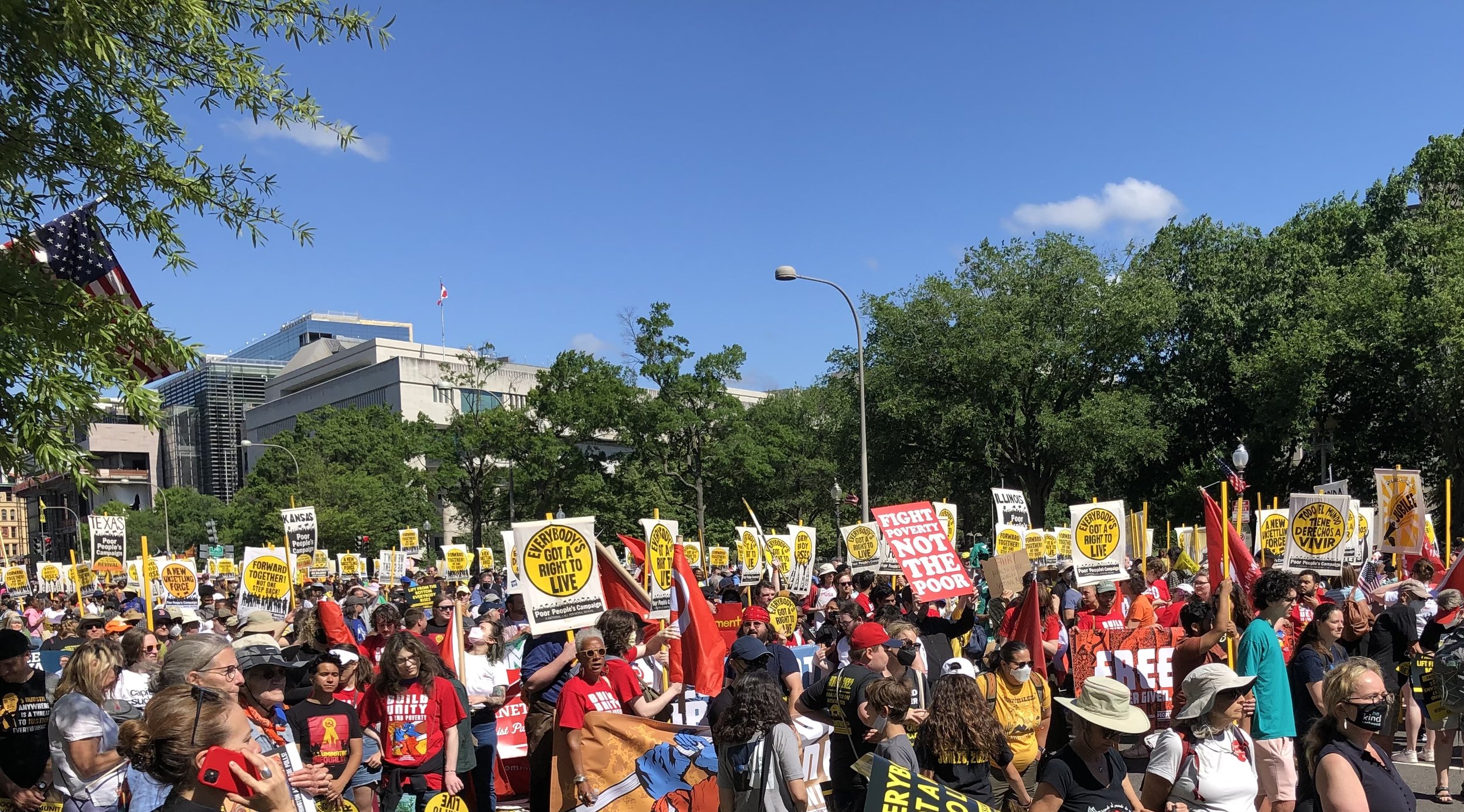
Justice in the Public Square
and Close to Home
The Community
I witnessed the power of a congregation focused on Social Justice during my two years as Intern Minister at Cedar Lane, where a deep commitment to Immigrant Justice led to multiple border trips and resulted in physical sanctuary being provided to a young mother facing deportation. (My work on Immigrant Justice inspired the essay HERE.)
At the smaller congregation I now serve, Social Justice activities are modest but impactful. Lay leaders instituted the practice of “Donuts & Democracy,” inviting congregants to arrive an hour before worship to write get-out-the-vote letters prior to the November election. A decision to focus on hunger relief led to a deepening relationship with the local Oxon Hill Food Pantry, where congregant volunteers kept the organization alive as it faced COVID-related challenges. Most recently, the congregation partnered with No Child Goes Hungry, which granted funds to build and support a Little Free Pantry on the church grounds. That pantry now stands near a mural commissioned by a local artist and completed with help from Davies families.
The Public Square
There are few things as inspiring as gathering with colleagues and congregants to march for the causes we hold dear. I love hitting the streets in my clergy collar, reminding press and public that liberal religious values are as active in the public square as conservative ones. It’s a chance to build relationships and have our voice heard.
However, different members of a congregation will be called to different forms of activism. Some may choose to write letters on behalf of beloved causes. Others might gather to march and protest. During the pandemic, many congregants felt unsafe joining in marches for Black Lives Matter. To give them an outlet, I organized a rally in the church parking lot. Members of all ages arrived with protest signs for a photo op. The pictures were then shared on social media and highlighted on the regional UUA blog. It was an opportunity for the congregation to express itself and to gather safely during challenging times.
Anti-Racism
The work of anti-racism is at the center of the Unitarian Universalist movement today, and is central to my ministry. I hope to guide congregations in this work even as I continue my own lifelong journey toward becoming more aware of my biases and missteps. Whether a congregation chooses to adopt the 8th Principle or not, the process of education and reflection can be transformative for all involved. I’ve enjoyed shepherding that work while at Davies.
Responsive Ministry
Social Justice work requires a flexible, responsive approach. When the local library closed for renovations, I encouraged the Davies Board to offer the church as a pop-up location. The church is now open to the public two days a week. Visitors peruse a modest selection of books, use laptops, and enjoy story time. In return, some church programs are promoted through the library’s communication channels. Our partnership extended to a discussion series on LGBTQ+ literature, significant in a socially conservative county.
Personal Values
Along with Davies members, my partner Gary and I volunteer with the Oxon Hill Food Pantry. While in seminary, I found inspiration spending early mornings with a Methodist church that offered a “Shower Ministry,” giving unhoused people a chance to bathe, receive a change of underclothes, and get some breakfast. This is the kind of action I find most meaningful as I attempt to live fully in the community that surrounds me.




